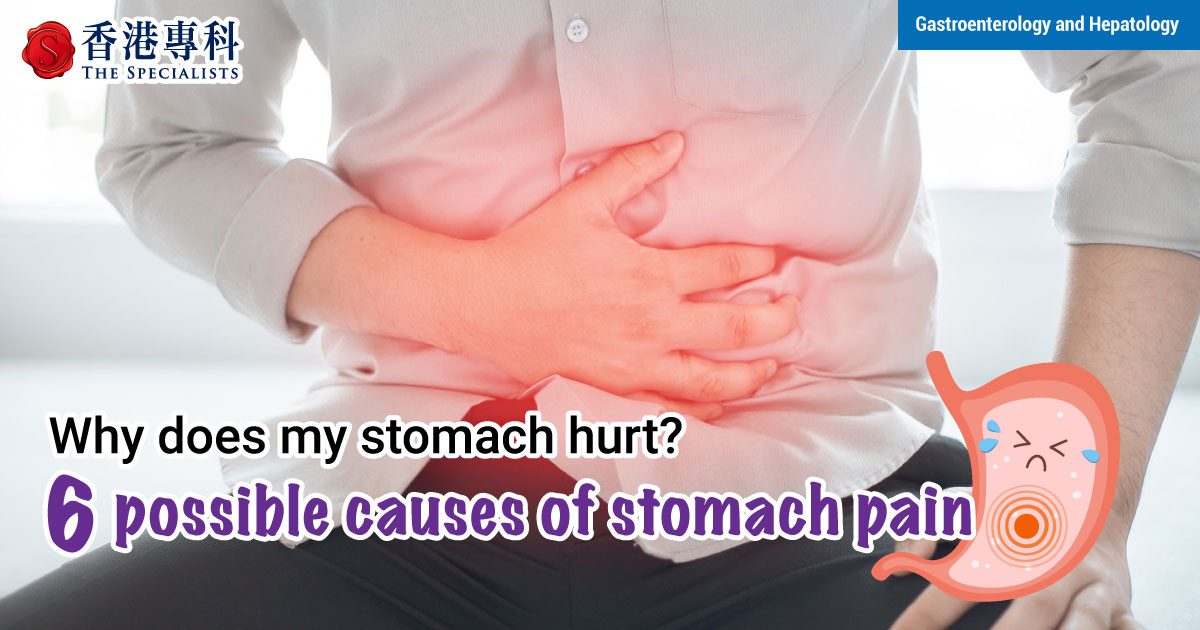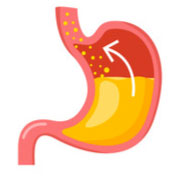Why does my stomach hurt? 6 possible causes of stomach pain

The stomach ache is often described as the stomach feels crampy, dull, intermittent, sharp or burning. It may start suddenly and unexpectedly, and often concentrated in a particular area. Short-term discomfort and a recurring stomach pain usually have different causes.
1. Indigestion
Patients might get indigestion from eating too much or too fast. Indigestion can cause stomach pain or bloating, or loss of appetite.
2. Gastroenteritis
Sudden stomach cramps can be caused by eating contaminated foods. Gastroenteritis is a condition involving inflammation of the lining of the gut. Infections in the stomach, intestines, and blood can make bacteria enter into the digestive tract, and result in watery diarrhoea and abdominal cramps, nausea, and sometimes fever.

3. Stomach polyps
A sudden stomach pain can be a sign of stomach polyps. When the polyps are small, they usually don't cause signs or symptoms. But larger polyps may cause internal bleeding or severe abdominal pain.
4. Gastroesophageal reflux disease (GERD)

A recurring stomach pain or a burning sensation (heartburn) in the chest (usually after eating) may be related to gastroesophageal reflux disease, or GERD. It is caused by stomach acid reflux due to disorders of the lower oesophageal sphincter (LOS), a muscular valve at the junction between the oesophagus and stomach. In normal digestion, the LOS opens to allow food to pass into the stomach and closes to prevents acid and stomach contents from travelling backwards.
5. Stomach ulcers
H. pylori bacteria is identified as a principal cause of stomach ulcers which can cause persisted or repeated stomach pain. The bacteria are usually found in stomach and duodenum. It survives in the acidic environment of our stomach. H. pylori has protective layers around them and produces urease to convert urea from gastric juices into ammonia. H. pylori infection can induce chronic gastritis, gastric or duodenal ulcer.
6. Irritable bowel syndrome (IBS)
Irritable bowel syndrome (IBS) is another common disorder that affects the large intestine and stomach. Signs and symptoms include cramping, abdominal pain, bloating, gas, and diarrhoea or constipation, or both.
Everybody experiences a stomach ache once in a while, and most of the time it is short lived and not serious to be concerned about. But a severe abdominal pain needs urgent treatment, since the pain in the upper abdomen can be caused by other organ conditions including the heart, liver, gallbladder, pancreas, lymphatic system and large intestine. Patients should check in with their GP or a Specialist in Gastroenterology at the earliest.
*The above information is for reference only, please consult your doctor for detail.

 3405 8288
3405 8288
